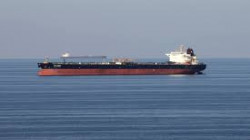$500 Million Oil, Gas Revenues Looted By Saudi Aggression, Mercenaries
An investigation by Al Masirah TV revealed that the revenues of oil and gas production looted by the US-Saudi aggression since the beginning of this year exceed one trillion and 200 billion riyals ($500 million), which could help covering the salaries of state employees for year and a half.
The investigation also explained that the total production of crude oil amounted to 18 million barrels, while the production of domestic gas reached 337 thousand metric tons since the beginning of this year.
It indicated that the revenues of oil exports and gas sales during four months of the truce amounted to 689 billion and 173 million, covering nine months’ salaries for all state employees.
Deputy Oil Minister Yasser Al-Wahidi indicated that the Saudi aggression seeks to raise the level of looting by working to operate Sector five “Jannat Hunt”. He explained that foreign companies are implementing a series of different treatments to raise the rate of production from Yemeni oil fields.
The spokesman for the Yemen Gas Company, Ali Maasar, also revealed that the proceeds of gas sales from January to this August amounted to more than 100 billion riyals and were supplied to the Marib Bank account.
For his part, the spokesman of the Yemen Petroleum Company Issam Al-Mutawakel explained that the revenues of fuel imports arriving at the port of Hodeidah are supplied to the account designated for salaries, the branch of the Central Bank of Hodeidah, according to Sweden agreement.
He stated that the revenues of fuel imports last year did not exceed 23 billion riyals, and this is a small amount that does not cover one month’s salaries.
A UN-brokered truce in Yemen first came into effect on 2 April, and for an initial two months. It was renewed for another two months in June.
The deal stipulated halting offensive military operations, including cross-border attacks, and allowing fuel-laden ships to enter Yemen’s lifeline Hodeidah port and commercial flights in and out of the airport in the capital Sana’a “to predetermined destinations in the region.”
However, in light of UN silence, the Saudi-led aggression was still obstructing flights to the Sana’a International Airport in Yemen’s capital and detaining fuel ships that were headed to the country. The fires of the aggression side did not subside along the fronts, on the borders and inside, including shelling, reconnaissance, development and crawl.
When the period specified for the military and humanitarian truce was nearing its end, the Saudi aggression seemed to be in a hurry to adopt the option of extending it for the third time to freeze the battle in Yemen and its economic repercussions away from global energy markets.
The forces of aggression are pushing for an extension, not out of concern for peace, but rather out of fear that the escalation will add more complications to the international scene in addition to the crisis imposed by the Russian-Ukrainian war.
A truce, the positive effects of which have not been felt by the citizens over the past months, despite its broad headlines. Commercial flights to Cairo are still stumbling until today, and the navy of aggression continues to pursue fuel ships without respect for agreements or any regard for international laws and norms.
Double standards regarding the violations of the forces of aggression and its provocative practices is a double UN policy that has brought the crisis in Yemen to its current level of misery and deprivation that has affected everyone far from justice and the realization of the rights of the Yemeni people.
The truce has been renewed for an additional two months through 2 October, UN Special Envoy for Yemen, Hans Grundberg, announced on Tuesday.
The extension includes a commitment by the Saudi-led aggression and the Salvation Government to intensify negotiations to reach an expanded agreement as soon as possible.
The UN representative to Yemen Hans Grundberg confirmed that the extension of the truce in Yemen for two additional months “includes a commitment to provide fuel and its regular flow through the port of Hodeidah.”

